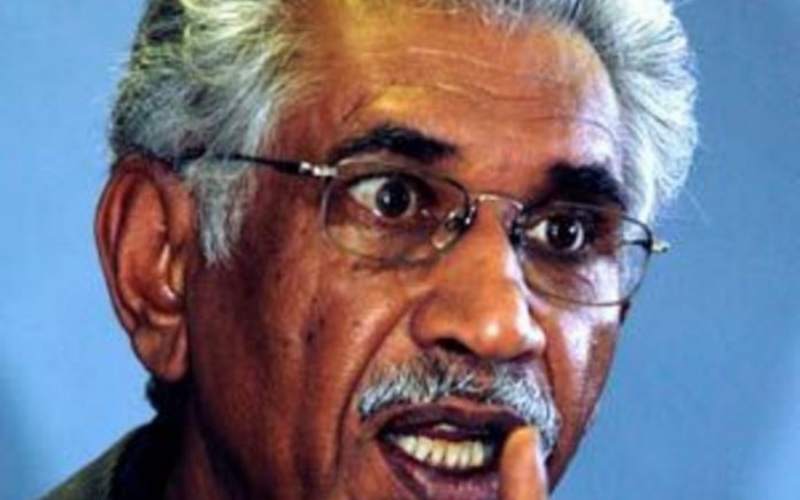Mac Maharaj was born on April 22, 1935, to Mr. and Mrs. NR Maharaj of Newcastle, Natal, as the fourth of eight children. He went to St Oswald’s School and afterward enrolled part-time at the University of Natal in Durban to study for a BA.
Maharaj was a member of the Students’ Representative Council at university, where he campaigned against student segregation and urged a boycott of the time’s separate graduation ceremonies. He was also the editor of the student journal Student Call from 1955 to 1956. Maharaj graduated from college with a bachelor’s degree in 1955. The ‘Non-European’ department of the university established an LLB faculty in 1956, where he completed his first year. The faculty, on the other hand, was closed down in 1957.
After Congress leaders were jailed for treason in 1956, Maharaj was requested to take over the management of the New Age newspaper. He chose to leave for the United Kingdom in August 1957 since he was unable to obtain a permit to study law in the Cape or the Transvaal. He re-started his LLB after enrolling part-time at the London School of Economics in 1959. After the Sharpeville massacre in 1960, the Congress movement demanded that he return to South Africa and devote more time to political activism. On May 2, 1962, he returned with his first wife, Ompragash.
In Johannesburg, Maharaj worked for an attorney’s firm and spent a lot of time thinking about politics. He was arrested in Johannesburg in July 1964, accused of sabotage, and convicted with four others in what became known as the Little Rivonia trial. On Robben Island, Maharaj was sentenced to 12 years in jail, which he completed. He earned a B.Admin, an MBA, and the second year of a B.Sc. degree while in prison before being released on December 8, 1976.
Following his release, Maharaj was issued a five-year ban prohibiting him from leaving his Merebank, Durban, home at night. His wife had fled the country in 1974 with an exit permit and was now living in London.
Maharaj was unable to support himself since he was denied permission to work in central Durban. On the orders of the ANC, he escaped South Africa in July 1977 and was stationed in Lusaka. At the Kabwe Conference in 1985, Maharaj, a key officer in the ANC’s political department, was elected to the ANC’s national executive committee.
From 1987 until 1990, Maharaj worked underground in South Africa as part of Operation Vula. Following the unbanning of the ANC and the South African Communist Party, he was compelled to flee the country and re-enter legally through an ANC-government indemnity from prosecution arrangement. He returned to the SACP and assisted in the organization and restructuring of the organization. In July 1990, he participated at a press conference with then-general secretary Joe Slovo to announce the SACP’s relaunch as a legal body.
During the launch on July 29, 1990, Maharaj was named a member of the SACP’s central committee and a member of the party’s 22-person interim leadership group.
Following police allegations of an ANC/SACP/Umkhonto we Sizwe plot (codenamed Operation Vula) to seize power if the ANC’s negotiations with the government failed, Maharaj was arrested in Johannesburg on July 26, 1990, just three days before the Party’s launch, under section 29 of the Internal Security Act. After the initial charges were brought under the Arms and Ammunition Act, more charges were added. In October 1990, Maharaj and eight others were charged with terrorism and illegal possession of firearms, ammunition, and explosives. They were accused of preparing to create a nationwide underground network to recruit, train, arm, and lead a ‘people’s army’ or revolutionary army’ in order to destroy the government through armed rebellion. After receiving partial indemnity for Operation Vula, the accused were released on bond in November 1990, and the charges against them were dismissed on March 25, 1991. In 1990, Maharaj announced his departure from the ANC’s central committee.
During the ANC’s national convention in Durban in July 1991, Maharaj joined the secretariat of the Convention for a Democratic South Africa (Codesa), which brought together major South African political organizations to negotiate a new constitutional dispensation.
After the 1994 elections, Maharaj was selected to the government and served as Minister of Transport until the 1999 elections. Maharaj left politics in 1999 to pursue a career in the private sector.
MORE:
- Biography of Adebayo Ogunlesi: A Nigerian Business Mogul
- The Biography of Kumi Naidoo: A South African Activist


















